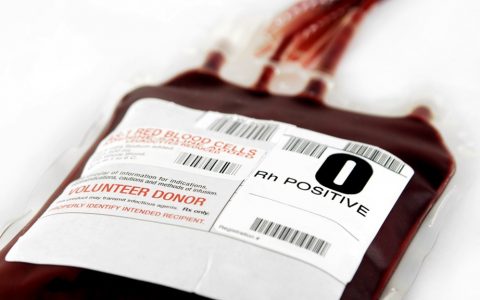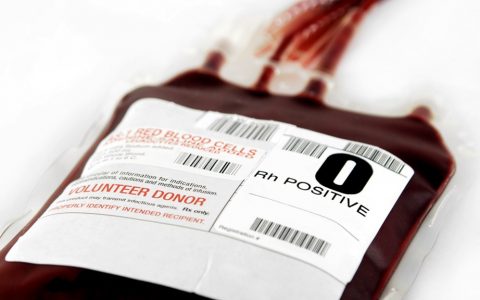Despite the incredible need for donor organs, recipients and donors who are also cannabis consumers have traditionally been turned away, but new research and state legislatures are changing that.
Each year, surgeons perform over 100,000 kidney, liver, and other solid organ transplants. Every 12 minutes, a new person is added to the organ transplant waiting list, and every day, 21 people die waiting for an organ match.
As more patients have turned to medical cannabis to treat their conditions, that choice has put the patient in a catch 22 situation.
Despite the high number of organ placements, recipient demand for donor organs still far outweighs the available supply. Nearly 120,000 patients are waiting for an organ, and in many cases, patients wait over a year for a match. The donor-recipient matching process for liver, kidney, and other organ transplants is very complex. Physicians consider many parameters, like disease progression and the patient’s functional status. An ideal match minimizes organ rejection while maximizing the patient’s long-term survival.
Organ donors and recipients have traditionally not been selected if they use cannabis. As more patients have turned to medical cannabis to treat their conditions, that choice has put the patient in a catch 22 situation: the very remedy that brings relief is also likely the reason for removal from the organ wait list. The same goes for organ donors.
Who Decides?
In the United States, two groups oversee organ donation: the US Food and Drug Administration (FDA) and the United Network for Organ Sharing (UNOS); the Centers for Medicare and Medicaid Services also get involved. UNOS policies strive to match donor organs with transplant candidates in ways that save as many lives as possible and provide transplant recipients with the best possible chances for long-term survival.
UNOS only considers criteria based on medicine or logistics; they do not consider social characteristics like income, insurance coverage or lifestyle choices. Together, UNOS and the FDA set organ donation criteria for the nation’s Organ Procurement Organizations (OPO), a network of 58 federally-designated centers across the country and territories. Each center is responsible for a specific geographical region. These non-profit organizations are on the front lines, interfacing between the hospital, donor, and recipient.
In addition to following FDA and UNOS guidelines, OPO medical directors can and often do set more stringent donor-recipient criteria. While all OPOs strictly adhere to ensuring there is no racial or gender discrimination in the process, OPO medical directors otherwise have free reign to use any other criteria as a disqualifying factor.
Why Does Cannabis Not Mix?
OPOs cite various medical reasons for disqualifying cannabis consumers as organ donors or recipients. Drug interactions between cannabis and post-transplant medications are a concern, as are lung infections. Transplant candidates already have compromised immune systems, and doctors say cannabis use significantly increases a patient’s risk of contracting deadly Aspergillosis fungal infections during the transplant process.
David Klassen, Chief Medical Officer at UNOS
Maine is an example of a stringent OPO ruling; after two organ recipients who were cannabis smokers died from the fungal infection, Maine enacted a policy to remove cannabis consumers from the waitlist. Once cannabis-free, they can be added back in.
In an interview with CNN, UNOS chief medical officer Dr. David Klassen said that while Aspergillosis is a devastating complication of any transplant, the reality is that scientists do not have a direct evidence-based link between cannabis use and an increased incidence of the fungus. Klassen described it as a matter of cost-benefit: “How much risk does cannabis really impose versus the benefit that the patient potentially gets from getting the transplant?”
Is the Tide Turning?
Indeed, Klassen’s question is the question, and more OPOs realize the need for a consistent answer.
In a recent journal publication entitled “Marijuana use in transplantation: a call for clarity,” researchers cited the tremendous variation among OPOs regarding cannabis policies as reported in the results of a survey sent to the American Society of Transplantation (AST) membership. The survey was designed to compare policies with actual observed complications clearly attributed to cannabis use. About 8% of the AST membership responded, noting tremendous variations in OPO approval processes—some even had wide policy differences within a single OPO. Respondents also noted a big disconnect between perceived risk of medical cannabis use and actual observed complications.
In another survey, researchers reported a lack of “consensus among experts regarding marijuana use in transplantation patients.” While the team cited a few individual case reports of kidney and heart complications as well as drug interaction issues like tacrolimus toxicity, the researchers also cited studies that show no difference in survival rates of cannabis users versus non-users, like the ones below.
Liver Transplants
Does cannabis use affect the outcome of a liver transplant? This research team looked retrospectively at nearly 1,000 adults who were evaluated for liver transplant at a large medical center. Patients could not be current cannabis consumers to be placed on the list, and prior cannabis use was either self-reported by patients or validated in urine tests. The prevalence of cannabis use in these patients was nearly 50%, and was not associated with worse outcomes on the transplant list. The same cannot be said of illicit drug use.
It seems that OPOs may be trending—albeit slowly—toward including cannabis as one of many holistic evaluation criteria rather than a standalone exclusion. 100 UNOS-approved liver transplant programs were questioned about liver transplants, typically needed by patients with either advanced hepatitis or alcoholic liver disease. Most programs require candidates to be “substance-abstinent” for at least six months before being considered for a donor organ.
About half of the programs responded to the survey, stating that about 28% of patients used cannabis but were required to discontinue use prior to surgery. About 14% had active cannabis consumers as transplant patients. These researchers noted that policies for cannabis, alcohol, and even drug use have become more flexible but remain highly variable across OPOs.
Heart & Lung Transplants
The heart and lung transplant OPOs also have no consensus regarding cannabis use, and for that matter, neither do physicians around the globe. This team conducted an international survey of 360 heart transplant providers from 26 countries, and found that 64% of respondents favored placement of advanced, end-stage heart failure patients on the transplant list even if they had used legal cannabis. Only about 27% favored list placement of recreational cannabis consumers. Most organ providers (68%) required the cannabis abstinence period.
Researchers who have delved into the issue show that these policies are driven largely by attitude and case reports rather than by a large body of scientific evidence. Science has shown that cannabis smokers are at increased risk of lung infections, emphysema, and lung cancer, but should OPOs assume the person is a bad organ donor choice?
me-cannabis” show_thumbnail=”true” ]
This research team says no. They looked at six years of retrospective data to answer that question, and found no evidence that cannabis use affected lung donor organ viability. There was no difference in patient outcomes regarding lungs from healthy donors and lungs from cannabis smokers.
Publicity of cases in which the organ donation process has failed a patient only add fuel to the fire, like the case of 19-year-old Riley Hancey, who was denied a double lung transplant in his home state of Utah. Hancey contracted a severe form of pneumonia that left both lungs scarred and collapsed, yet he tested positive for THC and was denied a slot on the transplant list. Months later, Hancey’s parents successfully got their son the operation in Pennsylvania, but his body was too weak and he died shortly after surgery.
Klassen told CNN that the transplant community’s goal is of course to use as many organs as possible. “That’s why we’re here. So when we turn someone down, it’s a personal failure in many ways.”
Kidney Transplants
Another research team looked at retrospective single-institution kidney transplant data from 2000 to 2016. Donors and recipients were divided into cannabis and non-cannabis groups, and their outcomes were compared. There were no noticeable differences in patient outcomes; in fact, long-term kidney function was nearly identical. The researchers concluded that studies like theirs could help increase the donor organ pool, and they hope their published results will add to the ongoing conversation.
Should Higher-Risk Donors Be Considered?
Given the demand for organs and longer waitlists, some governments like the UK are considering higher-risk organ donations for patients in extreme need who would otherwise not get a transplant. UK data shows that nearly 25% of patients in the decade between 2005 and 2015 died waiting for a transplant, so the National Health Service is looking into alternate donors for patients with debilitating lung conditions like cystic fibrosis and COPD/emphysema.
The risk, particularly for lung cases, is much higher in the UK where consumers tend to smoke both cannabis and tobacco. In contrast, Americans tend to smoke only cannabis. There are definitely two sides to the coin. In the case of lung transplants, why would a recipient want an organ exposed to the same harms as the diseased lung the patient is receiving the transplant for?
However, as of yet, there is no scientific evidence linking lung cancer to cannabis consumption, so people on the waitlist might be willing to take a higher-risk organ, given the alternative.
References:
- United Network for Organ Sharing (UNOS)
- Roayaie M.D. Ph.D., K., and Feng M.D. Ph.D., S. (2018). Transplant Surgery – Liver Transplant UCSF Division of Transplantation. Regents Univ. Calif.
- Forbes. What Factors Disqualify People From Being Organ Donors?
Other references can be found in hyperlinked text.








